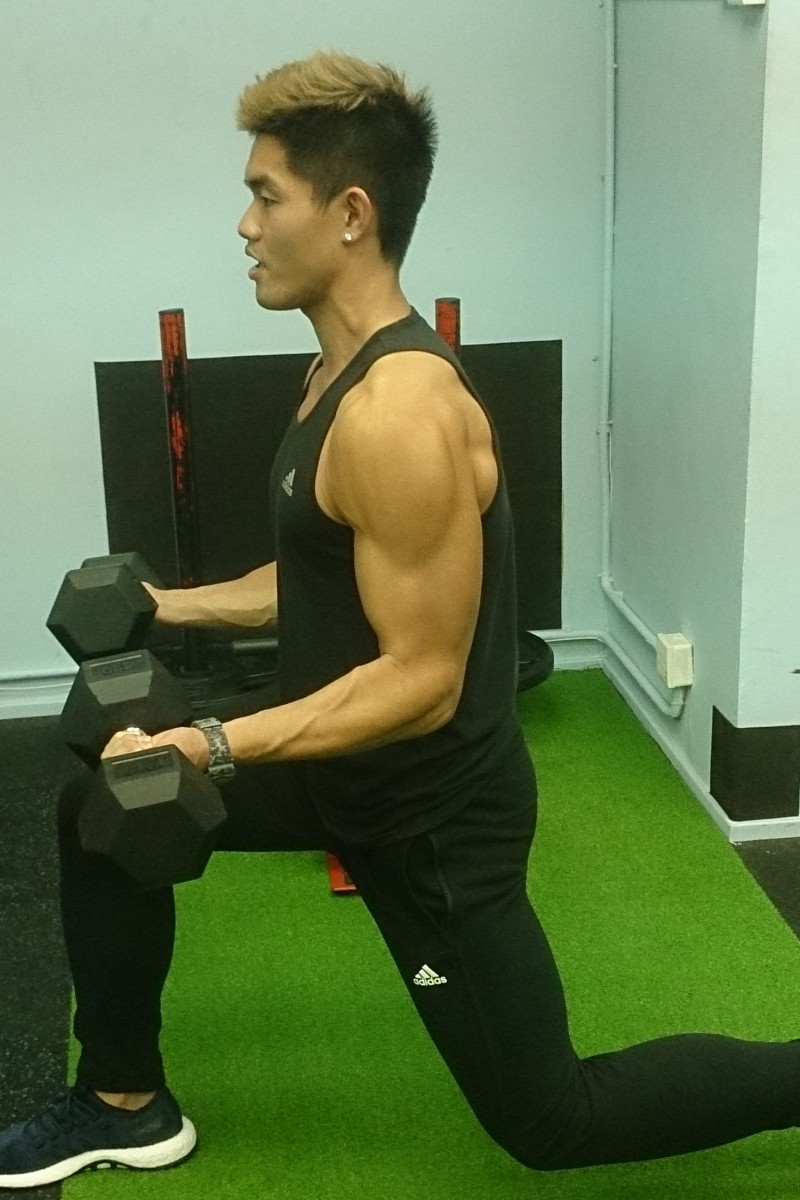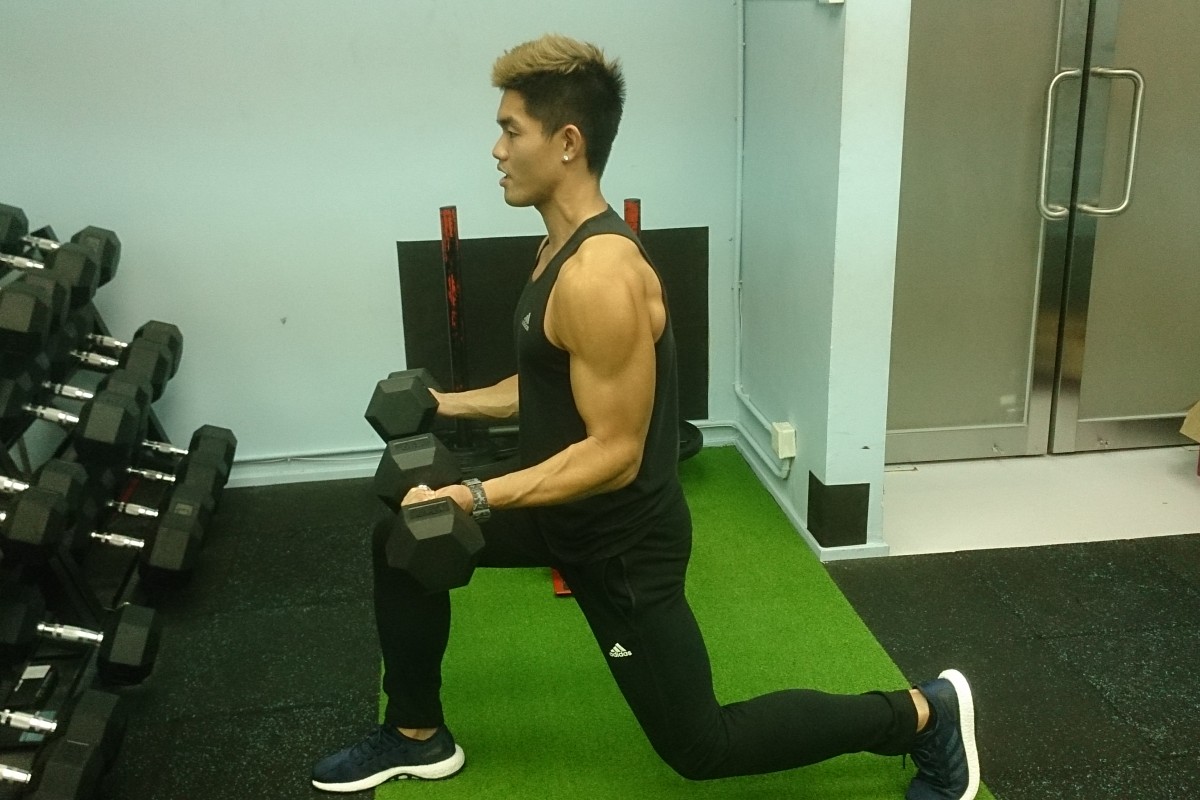
Haven't started your keeping fit new year's resolution yet? Here's a guide from experts on how to get started
You’re still at school. Should you start hitting the gym, or is it too early for body-building? We ask two fitness experts: a personal trainer and a nutritionist
 Calvin Au Yeung shows off some simple, effective moves.
Calvin Au Yeung shows off some simple, effective moves.So yeah, you’ve been bitten by the iron-pumping bug, but everyone says you’re too young to start building your body or lifting weights. Well, Young Post went to the experts to find out what they have to say, and also to get some handy tips on how to get started.
Personal trainer Calvin Au Yeung Ka-tsin says that as long as there is professional supervision and a properly designed programme, it is safe to start with resistance bands if you’re under 12.
“There should be no external weight,” he says. Then, after the age of 13, athletes can slowly start to add weights to their workouts. “They should avoid targeting one muscle as this will cause an imbalance.”
Au Yeung advises being patient with your fitness journey. “Focus on good technique and movement to promote joint health and prevent injuries,” he says.
Tanja Sobko, an assistant professor at the University of Hong Kong and an expert in nutrition and wellness, also advises young athletes to take things slowly. She says teens should only train two to three times a week, and not on consecutive days. She suggests doing a maximum of three sets with 15 repetitions each.
Au Yeung says that from 16, athletes can start to add more body-building or other intense workouts to their training.
“The training style and frequency of training really depends on the young athlete’s goal,” Au Yeung says. He adds that you should be looking to exercise each specific muscle group, for example chest or thighs, at least twice a week. “For body-building size, we should aim for four to five sets of between 10 to 15 repetitions, with 60 to 90 seconds rest in between sets.”
He suggests that each workout should last from 45 to 90 minutes.
A rule of thumb for young athletes is to have a high protein intake, while keeping the intake of carbohydrates and fats (particularly saturated and trans fats) low. Those doing more endurance-type sports, like running marathons or doing triathlons, can have more fats and carbs because both are usually burned during the longer exercise time.
Per day, guys should be looking at taking in 1.2g to 1.8g of protein per kilogram of their bodyweight. Girls should be looking for 1g to 1.5g, he says.
Sobko adds, “For teenagers 14 to 18 years old, energy requirements range from 1718 kcal per day for an inactive 14-year-old girl to 3804 kcal per day for a very active 18-year-old boy.”
“Young athletes should eat whole foods and maintain a balanced diet. Try to go for complex carbohydrates and complete meals. Avoid processed or canned foods, and pay attention to the fats and carbohydrate content on food labels,” Au Yeung says.
There are certain foods you should and should not eat before and after a competition. According to a Canadian Paediatric Society article in 2013, foods with high fibre and fat content can cause digestion problems, and should be avoided before a competition.
After competition, high protein and carb recovery foods – such as yoghurt with fruit or a sports drink with fruit and cheese – should be eaten within 30 minutes of exercise to help muscles recover more quickly.
For further nutrition and well-being information, Sobko suggests reading books and articles written by Dr Avery Faigenbaum, a world leader on fitness and conditioning.